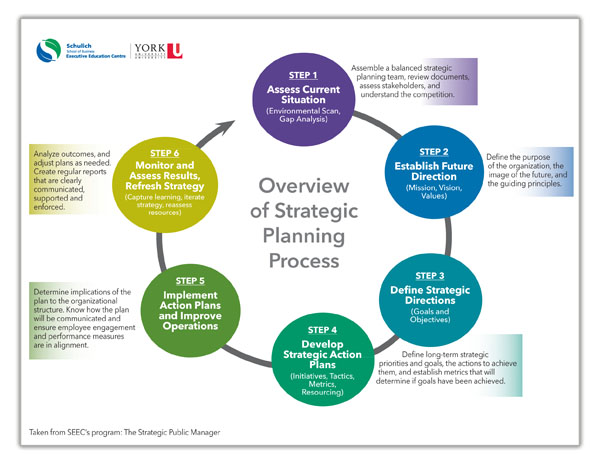Learn the Power of Strategic Planning for Public Sector Managers
Posted on October 22, 2018
No one in a position of responsibility enjoys taking stabs in the dark when it comes to decision making or leaving crucial outcomes to chance. That is why the ability to think strategically is a must for any leadership role and a position in public sector management is no exception.
Government programs must achieve results for citizens by being timely, cost-effective and results-oriented. It is public employees, including managers, who make that happen. Continually improving public service design and delivery is a huge responsibility. It means implementing strategic change and reforms in response to public feedback and societal changes.
It is through sound strategic planning that a manager maximizes efficiency and effects positive change, both within their department and the organization as a whole. The chart below, a downloadable PDF, outlines a strategic planning process proven to bring results and help public sector managers approach the complex demands of their role.
This material has been drawn in part from Schulich ExecEd’s upcoming program The Strategic Public Manager (starting Nov. 26, 2018).
The program is designed for public sector managers who want to improve their ability to manage up, down and across government for maximum strategic impact.














